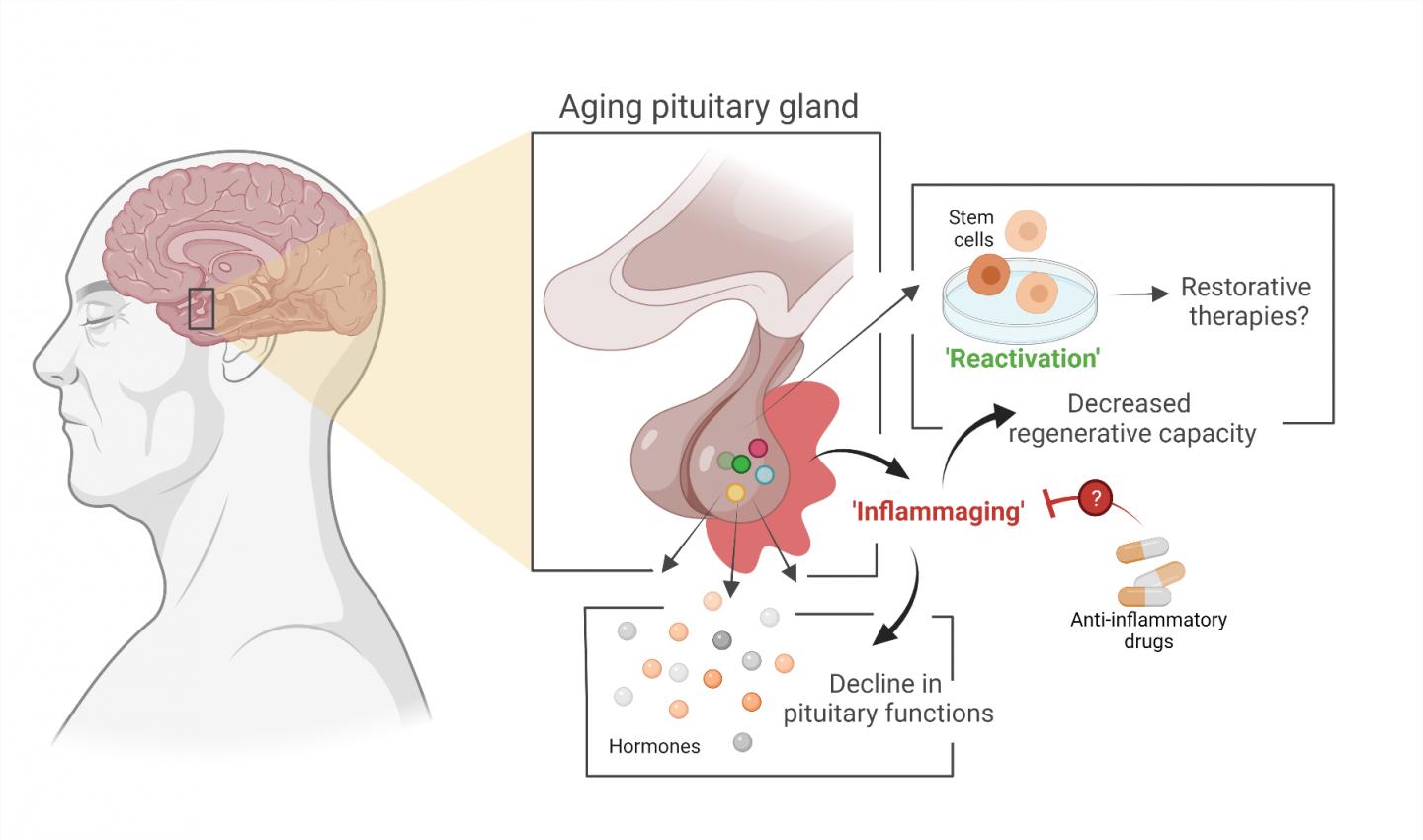
Aging doesn’t arrive in one moment. It sneaks in slowly. It doesn’t happen all at once, but something feels slightly different each year. You sleep but don’t recover. You eat but feel less full. And your body forgets the rhythm it once kept easily.
The endocrine system adjusts first. Quietly. Hormones stop rising the way they used to. Feedback loops stretch. And what once took hours now takes days. You sense the delay, even if you can’t name it.
There’s no sudden drop. No clear warning. Just changes that blend into each other. Subtle enough to doubt, real enough to stay.
Cortisol doesn’t spike as sharply, but it lingers longer
Stress doesn’t leave the same way it once did. Cortisol doesn’t spike as sharply, but it lingers longer. The mornings aren’t sharp. The evenings stretch thin. Tension lasts hours instead of moments.
The adrenal glands still respond, but slower. And the feedback that once stopped the stress response now echoes faintly. You carry it into sleep, into meals, into conversations.
Even small things feel heavier. Noise bothers more. Change tires faster. The hormones still function, just in a softer, slower version of their former rhythm.
Insulin still works, but not as quickly as before
You eat the same meals. But the energy hits differently. Insulin still works, but not as quickly as before. Blood sugar takes longer to settle. Hunger doesn’t mean the same thing anymore.
The pancreas tries to keep up. But its response is slower, less sharp. Glucose sticks around longer than it should. You feel it in your focus, your breath, your legs.
Some days, meals bring more fatigue than fuel. Other days, you feel fine. But the pattern changes. And the pattern is the message.
Estrogen declines quietly, then loudly
Hormonal decline doesn’t knock. It fades in the background first. Estrogen declines quietly, then loudly. The cycle shortens. Then disappears. Mood shifts become deeper. Not always dramatic, but persistent.
The body loses lubrication. Joints creak more. Skin thins. Sleep fractures. And still, estrogen sits lower each month. Receptors listen for something that no longer arrives.
Some feel anger. Others feel fog. Most feel alone. Because nothing about this change is predictable. And everything about it feels like a guessing game.
Testosterone doesn’t vanish, it just forgets how to rise
The decline in testosterone isn’t sudden. It’s a slow forgetting. Testosterone doesn’t vanish, it just forgets how to rise. Motivation dips. Muscles soften. Desire quiets.
Men notice it in the gym, in the mirror, in the silence of the body. Recovery slows. Confidence flickers. Energy doesn’t build the way it once did.
Supplements help some. Others feel nothing. Because hormones aren’t ingredients—they’re timing. And the body now moves at a different pace than memory.
The thyroid tries to keep up, but the signal weakens
You feel colder. Your heart beats slower. The thyroid tries to keep up, but the signal weakens. TSH rises. T3 hesitates. Metabolism slows, but not evenly.
Weight creeps in without new food. Hair falls quietly. The gut slows too. Yet tests often look “normal.” Because aging doesn’t break systems. It just shifts their baseline.
Some days, you feel sharp again. Others, dull. That’s the thyroid speaking. Not in disease, but in exhaustion. It’s not about damage. It’s about delay.
Growth hormone stops responding to small demands
Tissue repair drags. Skin bruises easier. Growth hormone stops responding to small demands. Sleep no longer triggers its rise. Injury takes longer to fade.
You still produce it—but less. And not when needed most. Bones feel more fragile. Muscle tone disappears faster. Nights no longer rebuild the way they used to.
You stretch more. Rest longer. But recovery takes time. Not hours. Sometimes weeks. And no supplement truly replaces the hormone your brain has stopped prioritizing.
Melatonin begins to shift before sleep changes are even noticed
Sleep changes come slowly. But the signal behind them shifts early. Melatonin begins to shift before sleep changes are even noticed. Darkness no longer triggers rest like it did.
You fall asleep later. Wake up earlier. Rest feels shallow. Dreams vanish. The pineal gland still produces melatonin. Just at the wrong times.
Screens make it worse. So does stress. But even without them, the rhythm changes. And your mornings begin before you’re ready.
Parathyroid hormones rise, but bones grow hollow
Calcium levels stay steady—for a while. But the source shifts. Parathyroid hormones rise, but bones grow hollow. The body pulls calcium from inside. Not from food.
Bones thin. Joints ache. A stumble leaves bruises longer. Recovery becomes cautious. Supplements can help, but the body listens to hormones first. Always.
It’s not just age. It’s instruction. Hormonal signaling whispers to the skeleton. And the skeleton begins to listen a little too much.
Oxytocin feels less spontaneous than it used to
Connection remains. But the feeling is different. Oxytocin feels less spontaneous than it used to. Affection requires more presence. Touch doesn’t surge the same.
Social bonds stay, but the warmth behind them cools slightly. The hormone still arrives—but later. The moment passes before the emotion deepens.
That doesn’t mean less love. Just a different cadence. More intentional. Less chemical. Less automatic. But no less real.
